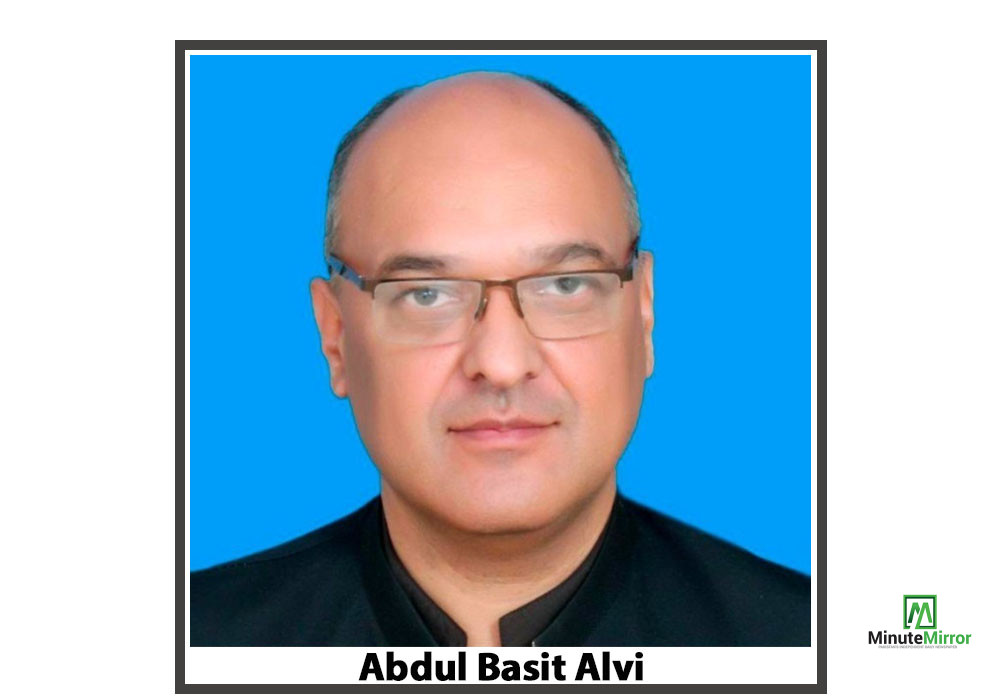- President, King of Bahrain discuss to strengthen relations RADIO PAKISTAN
- President Zardari arrives in Bahrain’s capital on 4-day official visit Dawn
- President leaves for Bahrain today The Express Tribune
- President Zardari’s Bahrain visit to…
Category: 1. Pakistan
-
President, King of Bahrain discuss to strengthen relations – RADIO PAKISTAN
-
Reforms indispensable to align Pakistan's civil service with int’l standards: PM – RADIO PAKISTAN
- Reforms indispensable to align Pakistan’s civil service with int’l standards: PM RADIO PAKISTAN
- PM Shehbaz stresses urgent reforms for civil service Daily Times
- PM seeks effective recommendations to evaluate performance of federal secretaries,…
Continue Reading
-
President Zardari meets Bahrain’s king in Manama, discusses defence cooperation, regional and global matters – Dawn
- President Zardari meets Bahrain’s king in Manama, discusses defence cooperation, regional and global matters Dawn
- President Zardari receives Bahrain’s top honour for boosting bilateral ties The Express Tribune
- Zardari receives Bahrain’s…
Continue Reading
-

A Strategic Signal: Why Pakistan’s JF-17 has entered the Regional Conversation
The JF-17 Thunder, a lightweight combat aircraft jointly developed by China and Pakistan, has increasingly featured in regional defence discussions in recent weeks. Official statements and media reports indicate that Pakistan is engaged in…
Continue Reading
-
Govt to provide financial assistance to explosion-hit families in ICT: Kheal assures – RADIO PAKISTAN
- Govt to provide financial assistance to explosion-hit families in ICT: Kheal assures RADIO PAKISTAN
- Gas leak, not cylinder, caused fatal blast in G-7 sector: residents Dawn
- Bride and groom killed by gas explosion day after Pakistan wedding BBC
- 25…
Continue Reading
-
‘He was my friend’: Father mourns newlywed son, family lost in Islamabad gas blast – Arab News
- ‘He was my friend’: Father mourns newlywed son, family lost in Islamabad gas blast Arab News
- Gas leak, not cylinder, caused fatal blast in G-7 sector: residents Dawn
- Bride and groom killed by gas explosion day after Pakistan wedding BBC
- 25…
Continue Reading
-
Pakistan’s New Gwadar International Airport conducts first full-scale emergency drill-Xinhua
ISLAMABAD, Jan. 14 (Xinhua) — Pakistan’s New Gwadar International Airport in the country’s southwestern Balochistan province has successfully conducted its first full-scale airport emergency exercise, the Pakistan Airports Authority (PAA)…
Continue Reading
-
Pakistan aware high taxation drove out firms, govt pushing ahead with structural reforms, says Finance Minister
More News15 Jan 2026 | 10:47 AMWashington, Jan 15 (UNI) United States President Donald Trump on Wednesday said he has received assurances that the killings of anti-government protesters in Iran have stopped, while Iranian Foreign Minister Abbas…
Continue Reading
-

WHO EMRO – WHO and Gavi support Pakistan with vehicles to enhance immunization and reach “zero-dose” children in remote areas
WHO Representative in Pakistan, Dr Luo Dapeng, and the Federal Health Minister, Syed Mustafa Kamal, hand over vehicles to enhance Immunization activities to provincial authorities. Photo credit: Hamid Inam/ WHO…
Continue Reading
-

CDF’s Strict Warning to India and Afghanistan
The Chief of Defence Forces, Field Marshal Syed Asim Munir, has announced a decisive shift in Pakistan’s defense doctrine, introducing a firm and uncompromising national security framework focused on protecting sovereignty and territorial…
Continue Reading